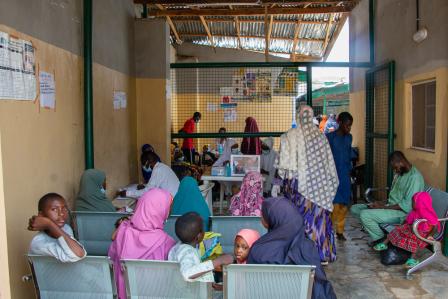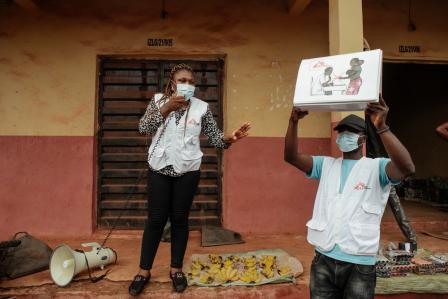Nursing in Nigeria: “The passion was just ignited in me"
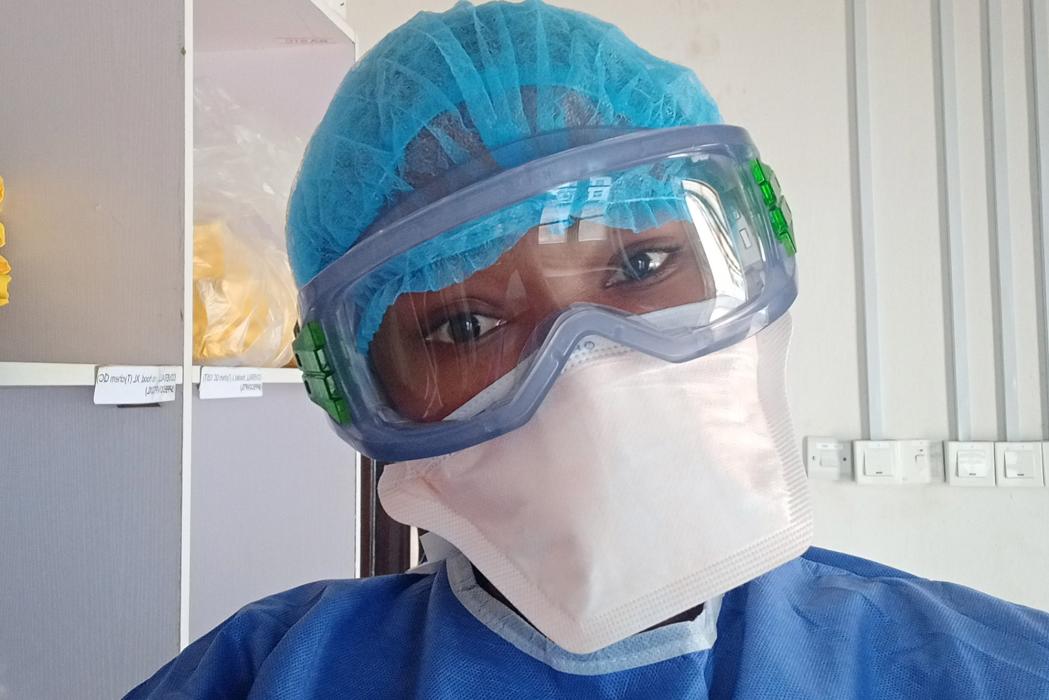
Doctors Without Borders nurse Shirley Samson wearing full PPE. © Shirley Samson/MSF
An outbreak of Lassa Fever gave nurse Shirley Samson a passion for protecting her patients and colleagues. Since then, she’s worked through a pandemic, overcome supply shortages, and been part of the team responding to multiple emergencies. Now responsible for preventing and controlling infection in Doctors Without Borders / Médecins Sans Frontières (MSF) project in Ebonyi State, she explains why this work is key when it comes to saving lives.
I first joined Doctors Without Borders on a short-term contract. The team needed support to care for patients during the peak season for Lassa fever, which is a viral haemorrhagic disease. The year before, in 2018, there was a huge outbreak of Lassa fever here. Many healthcare workers didn’t have access to appropriate personal protective equipment and ended up risking their lives to take care of the patients. Some died in the course of their service, alongside their patients. Doctors Without Borders set up a project to respond to the crisis.
I knew what had happened with Lassa fever in 2018, so when I was offered a temporary job the I was skeptical about working in the treatment centre. However, on my first day I saw that I had everything I needed to keep myself safe: the scrubs, the boots, the surgical gowns, the coveralls, the masks, the respirators, goggles.
Passion
In my previous jobs, I always felt I was in a tight corner. I had never worked anywhere where healthcare was provided free of charge. Instead, patients and their families have to pay for this, they have to buy that. When they don't bring the money, you don't treat them. This means as a nurse, you have two options: spend your money to take care of them, your personal money, or watch them suffer.
But for that four months in the Doctors Without Borders Lassa fever project, I was able to do everything I wanted for my patients. I had PPE. I had access to medication. If I saw my patient was wearing a long face, I could talk to the mental health counsellors and they would give their support. My patients had basically everything they needed. It made me really, really happy.
But in April 2019, when the peak season ended, our short-term contracts ended with it.
A new challenge
I started looking for jobs with Doctors Without Borders. Any adverts I saw, I applied. I even applied to be a cleaner, that was how much I wanted to be part of Doctors Without Borders. At last I got a nursing job in northern Nigeria, at an Doctors Without Borders hospital for people displaced by conflict. A different kind of battle ground. But my experience with Lassa fever had developed a deep consciousness of infection control in me, I had seen how it could save lives and I wanted to learn more.
I started doing online courses. Any organization that put up an infection prevention and control training, I would key in. I really loved this branch of medicine. In February 2019, I applied for the role of infection prevention and control supervisor back in the Lassa fever project, where my Doctors Without Borders journey had started. I got the job.
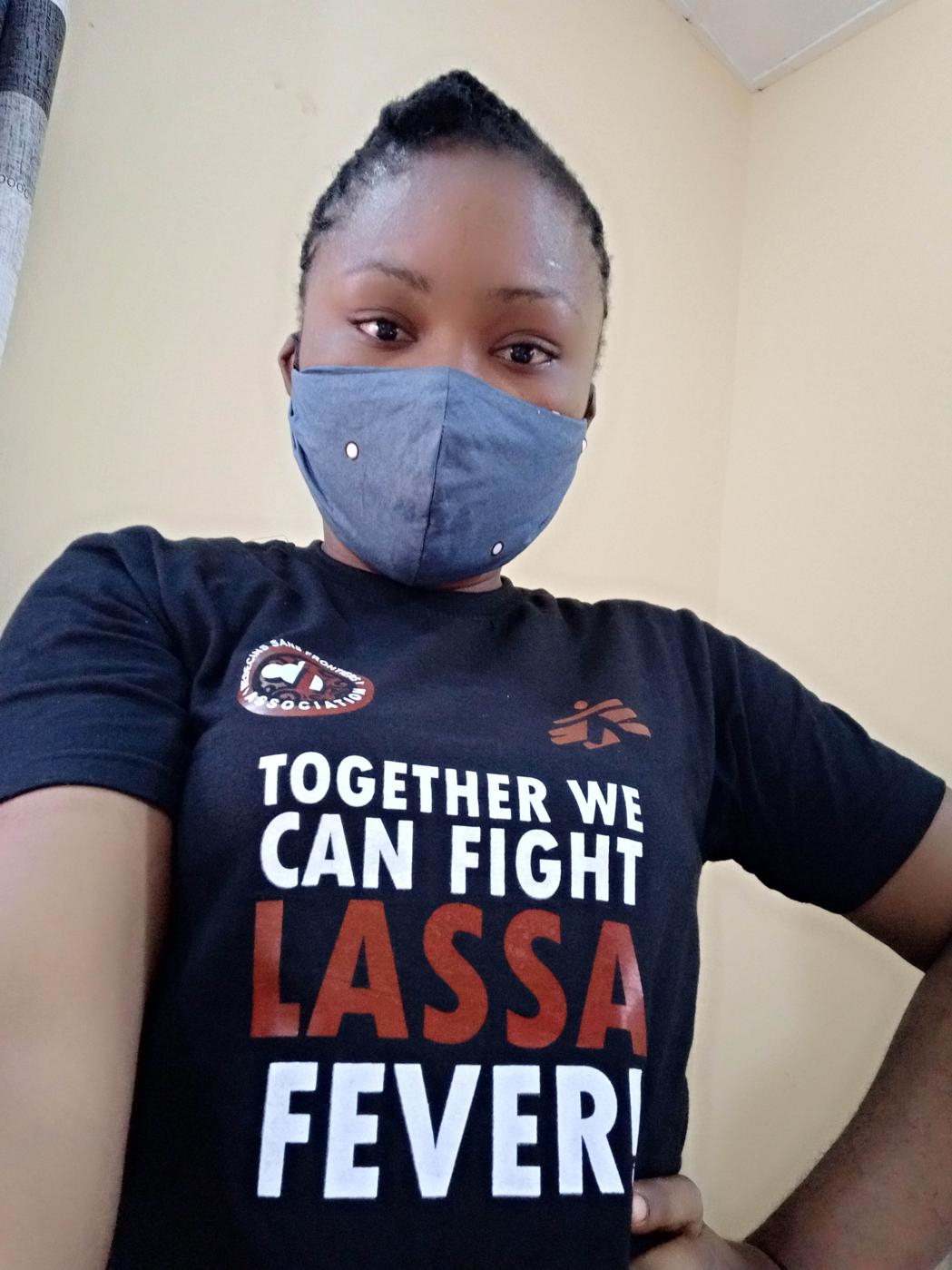
What I do
In our project, the health promotion teams are out in the community sharing information about how people can avoid Lassa fever. Meanwhile I work to ensure that the virus doesn’t spread within the hospital. There’s not enough research into the disease, which means that diagnosis is still difficult and the treatments we have are adapted from other viruses. To me that makes preventing infections even more important.
I put things in place to prevent accidental exposure among the staff and if a staff member gets exposed, then I also ensure they are monitored and get a post-exposure prophylaxis if needed. Since Doctors Without Borders’s intervention in 2019, no staff member has died from Lassa fever here.
We make sure that everyone who works at the centre is trained and retrained and trained again. I ensure that cleaning and decontaminations are up to standard, and personal protective equipment is available. Sometimes I feel like a police officer, trying to prevent mis-use of the PPE, but it’s my responsibility to see we don’t run out, even when there are shortages. The availability, the cost of purchasing it, the time it takes for the shipment, for clearing it through customs – it all means we can’t afford to waste anything.
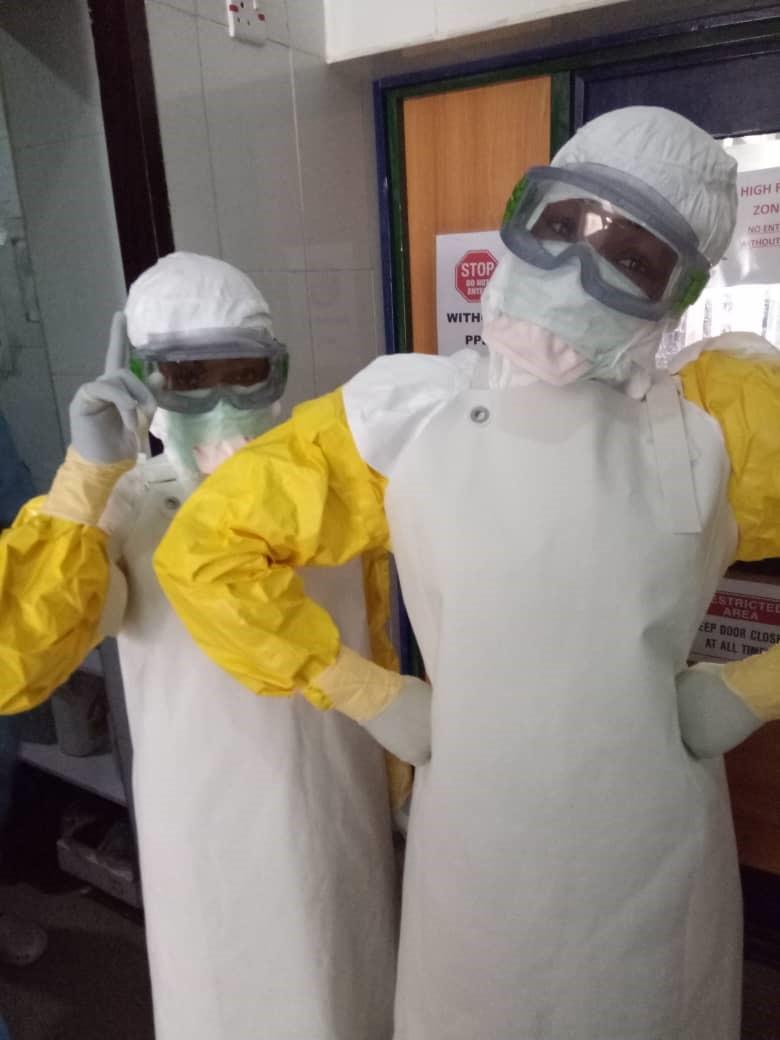
Last year, as soon as the peak season for Lassa fever ended, COVID came up. We swapped immediately and started supporting the COVID treatment centres. And when there are other outbreaks in the region, like cholera, Yellow Fever, acute watery diarrhea, our teams are there.
My job
I love my job. I have the laboratory. I have the laundry. I have the central sterilization unit. I’m in everybody's business. I work with the medical team, the health promotion team, the environmental health team, the construction team. It's one thing to treat infection but it's another thing to prevent it. If it is preventable, then that’s what we try to do.
Shirley Samson is a nurse who works with Doctors Without Borders at a Lassa fever project in Ebonyi State, Nigeria.
